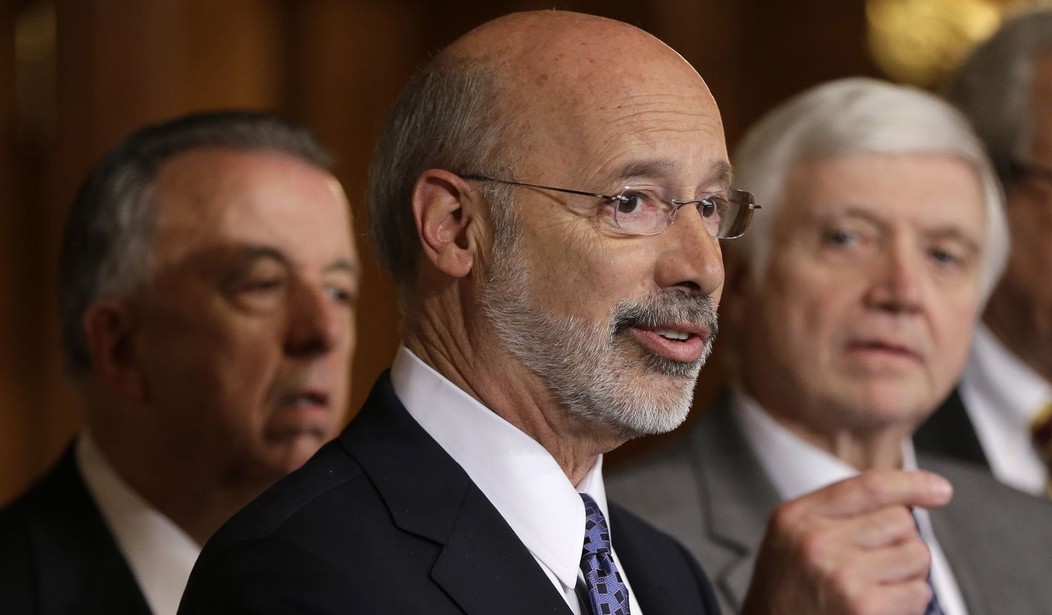The coronavirus pandemic hammered Pennsylvania’s economy in 2020. But the key to economic recovery -- once a more predictable regimen of vaccinations is firmly in place and Covid-19 begins to abate -- must be a careful study in what government should and should not do, stress researchers at the Allegheny Institute for Public Policy.
“With recently released state employer payroll data for December, the extent of the damage can clearly be seen,” say Frank Gamrat, executive director of the Pittsburgh think tank, and Jake Haulk, its president-emeritus.
“Pennsylvanians lost jobs in nearly every sector, pushing employment to decade-ago levels,” the Ph.D. economists conclude (in Policy Brief Vol. 21, No. 6).
For quite some time, the Allegheny Institute has been documenting the Keystone State’s subpar growth in non-farm jobs. The pandemic, as one might expect, only exacerbated the problem.
In 2020, the relatively sluggish monthly year-over-year jobs gains in Pennsylvania continued in the two months prior to the massive coronavirus impact with January posting a rise of 0.71 percent and February at 1.02 percent. But national gains were far stronger at 1.54 percent in January and 1.61 percent in February.
“After massive job losses in April and May, there was some recovery as the lockdown eased somewhat,” Gamrat and Haulk say. “Nonetheless, for 2020 as whole, the average monthly non-farm jobs count in the state was 5.617 million, a huge decline of 7.36 percent from 2019’s average of 6.064 million and the lowest count since 2009 when the monthly average was 5.616 million.”
That’s not to say the national jobs slide wasn’t quite large. But it was not as dramatic as Pennsylvania’s. The average monthly number of jobs nationwide in 2020 was 142.22 million, down 5.8 percent from 2019 (150.94 million) and the lowest annual number since 2015 (141.83 million).
Recommended
Total private jobs (excluding public-sector employment) recorded a bigger drop than non-farm jobs. The monthly average number of private jobs in Pennsylvania in 2020 came in at 4.93 million—8 percent lower than 2019’s average monthly count of 5.36 million.
“The 2020 count was the lowest since the 4.85 million jobs in the Great Recession year of 2010,” the think tank scholars note.
So, what must Pennsylvania do going forward to begin repairing the damage?
“The one thing that should not be done is to raise the minimum wage at a time when many businesses are foundering and in danger of closing,” Gamrat and Haulk say. “But that’s exactly what the governor has proposed in his budget for fiscal 2022.”
And that could lead to fewer entry-level jobs – jobs that teach so many how to work and, thus, how to advance their job opportunities.
Additionally, the proposed personal income tax hike – a more than 45 percent increase – also is “a very bad idea,” the scholars note.
Lest we forget, the personal income tax also applies to thousands of small businesses. Those that have not closed have been operating on the thinnest of margins; such a massive tax increase easily could lead to their demise.
“The best way to reverse these (pandemic-fueled) job losses would be to help these industries, not place more impediments in their way,” Gamrat and Haulk stress.
And as more vaccinations are carried out, customer occupancy levels should be increased.
“As we have been advocating for many years, the state must facilitate a business climate that is conducive to growth – such as by reducing regulations and lowering tax levels on these companies, which will encourage them to grow and prosper,” the think tank researchers conclude.
They reiterate a sound public policy that too many government-types either don’t understand or dismiss out of hubris.
Colin McNickle is communications and marketing director at the Allegheny Institute for Public Policy (cmcnickle@alleghenyinstitute.org).
























Join the conversation as a VIP Member